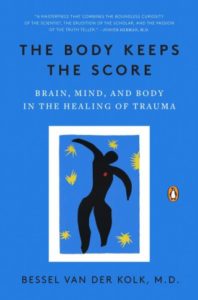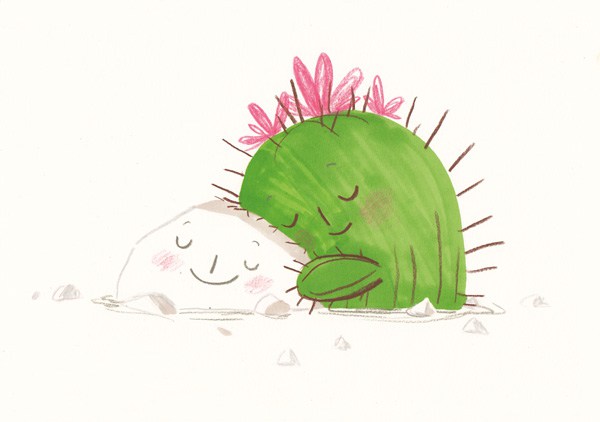The Science of How Our Minds and Our Bodies Converge in the Healing of Trauma
HEALTH, 27 Jun 2016
Maria Popova | Brain Pickings – TRANSCEND Media Service
“When our senses become muffled, we no longer feel fully alive… If you have a comfortable connection with your inner sensations … you will feel in charge of your body, your feelings, and your self.”
 “A purely disembodied human emotion is a nonentity,” William James asserted in his revolutionary 1884 theory of how our bodies affect our feelings. Two generations later, Rilke wrote in a beautiful letter of advice to a young woman: “I am not one of those who neglect the body in order to make of it a sacrificial offering for the soul, since my soul would thoroughly dislike being served in such a fashion.” And yet in the century since, we’ve made little progress on making sense — much less making use — of the inextricable dialogue between the physical body and the psychoemotional interior landscape we shorthand as “soul.”
“A purely disembodied human emotion is a nonentity,” William James asserted in his revolutionary 1884 theory of how our bodies affect our feelings. Two generations later, Rilke wrote in a beautiful letter of advice to a young woman: “I am not one of those who neglect the body in order to make of it a sacrificial offering for the soul, since my soul would thoroughly dislike being served in such a fashion.” And yet in the century since, we’ve made little progress on making sense — much less making use — of the inextricable dialogue between the physical body and the psychoemotional interior landscape we shorthand as “soul.”
Nowhere is this relationship more essential yet more endangered than in our healing from trauma, and no one has provided a more illuminating, sympathetic, and constructive approach to such healing than Boston-based Dutch psychiatrist and pioneering PTSD researcher Bessel van der Kolk. In The Body Keeps the Score: Brain, Mind, and Body in the Healing of Trauma (public library), he explores “the extreme disconnection from the body that so many people with histories of trauma and neglect experience” and the most fertile paths to recovery by drawing on his own work and a wealth of other research in three main areas of study: neuroscience, which deals with how mental processes function within the brain; developmental psychopathology, concerned with how painful experiences impact the development of mind and brain; and interpersonal neurobiology, which examines how our own behavior affects the psychoemotional and neurobiological states of those close to us.
Trauma, Van der Kolk notes, affects not only those who have suffered it but also those who surround them and, especially, those who love them. He writes:
One does not have be a combat soldier, or visit a refugee camp in Syria or the Congo to encounter trauma. Trauma happens to us, our friends, our families, and our neighbors. Research by the Centers for Disease Control and Prevention has shown that one in five Americans was sexually molested as a child; one in four was beaten by a parent to the point of a mark being left on their body; and one in three couples engages in physical violence. A quarter of us grew up with alcoholic relatives, and one out of eight witnessed their mother being beaten or hit.
[…]
It takes tremendous energy to keep functioning while carrying the memory of terror, and the shame of utter weakness and vulnerability.
To continue reading please Go to Original – brainpickings.org
DISCLAIMER: The statements, views and opinions expressed in pieces republished here are solely those of the authors and do not necessarily represent those of TMS. In accordance with title 17 U.S.C. section 107, this material is distributed without profit to those who have expressed a prior interest in receiving the included information for research and educational purposes. TMS has no affiliation whatsoever with the originator of this article nor is TMS endorsed or sponsored by the originator. “GO TO ORIGINAL” links are provided as a convenience to our readers and allow for verification of authenticity. However, as originating pages are often updated by their originating host sites, the versions posted may not match the versions our readers view when clicking the “GO TO ORIGINAL” links. This site contains copyrighted material the use of which has not always been specifically authorized by the copyright owner. We are making such material available in our efforts to advance understanding of environmental, political, human rights, economic, democracy, scientific, and social justice issues, etc. We believe this constitutes a ‘fair use’ of any such copyrighted material as provided for in section 107 of the US Copyright Law. In accordance with Title 17 U.S.C. Section 107, the material on this site is distributed without profit to those who have expressed a prior interest in receiving the included information for research and educational purposes. For more information go to: http://www.law.cornell.edu/uscode/17/107.shtml. If you wish to use copyrighted material from this site for purposes of your own that go beyond ‘fair use’, you must obtain permission from the copyright owner.
